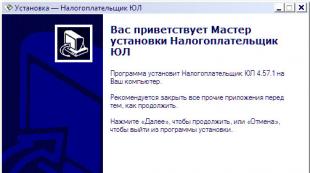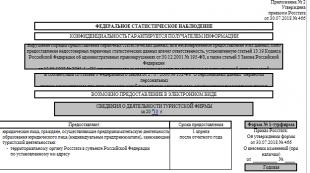Hail, Caesar, those who walk death salute. What does "ave" mean?
> Ave, Imperator, moritūri te salūtant
3 Ave, Caesar, Imperator, moritūri te salūtant
Ave, Caesar, morituri te salutant
Hail, Caesar, emperor, those who are about to die greet you.
Greetings from Roman gladiators addressed to the emperor.
It is attested by the Roman historian Suetonius, who says that the gladiators who went to the sea battle arranged by him on Lake Fuka ("Divine Claudius", 21) were supposed to greet the Emperor Claudius in this way.
The public is generally inclined to regard Switzerland as an impregnable country, and to equate the army invading there with those Roman gladiators whose parting exclamation, "," has become so widely known. (F. Engels, Mountain war before and now.)
[Elena Viktorovna] quietly, as if even shyly, answered: in the old days people lived more cheerfully and did not know any prejudices. Then, it seems to me, I would be in place and would live a full life. Oh, ancient Rome! No one understood her, except Ryazanov, who, without looking at her, slowly uttered in his velvety actor's voice the classic, well-known Latin phrase: Ave, Caesar, morituri te salutant. (A. I. Kuprin, Yama.)
Bukholtsev looked attentively at Simokhotov. “My dear friends,” he continued, “at this moment you can believe me, before you is doomed to death. How do you say it in Latin? I'm bad at this. - Moriturus, - prompted Bukholtsev. “Ave, Caesar, morituri te salutant,” added the Oriental, a philologist by profession. (P. P. Gnedich, Seekers.)
You ended your letter with pomp: "Morituri te salutant!" We are all morituri, because none of us can say to ourselves: naturus sum. [ Instead of nasciturus sum - "I have to be born." - auth. ] (A. P. Chekhov - A. S. Suvorin, December 8, 1892.)
A sad, depressing impression remains with us after reading Mr. Kasprowicz's peasant poems. After all, this is morituri nos salutant. (Ivan Franko, From the field of science and literature.)
I still see him - [Napoleon] on horseback, I see those immortal eyes on the marble face of the emperor, looking with fatal calm at the passing guards regiments - at that time he sent them to Russia, and all the old grenadiers looked at him so reasonably - severely, with such terrible devotion, with such proud readiness for death: te, Caesar, morituri salutant. (Heinrich Heine, English Fragments.)
My room is filled with the roar of chariots, the sound of trumpets, the neighing of horses and the noise of troops. The windows are trembling, my ears are ringing, my heart is pounding, I will now shout: Ave, Caesar, imperator. (Romain Rolland, Cola Breugnon.)
□ The death of an obsolete world will seize us too, it is impossible to save ourselves, our historical lungs cannot breathe air other than the infected one, we are drawn with it into inevitable death; it is legal, necessary, we feel that we will soon be no longer needed; but disappearing with it, but feeling such a need that bound us, we will inflict even the most evil blows on it and, perishing in defeat and chaos, we will joyfully greet the new world - the world is not ours - with our "The dying greet you, Caesar." (AI Herzen, Letters from France and Italy.)
4 Hail, Caesar, emperor, those who are about to die greet you
Ave Caesar, imperator, morituri te salutant
See also other dictionaries:
ave Caesar,
Ave, Caesar, morituri te salutant- Ave Caesar Morituri te Salutant, por Jean Léon Gérôme (1859), donde se muestra a un grupo de gladiadores que saluda al emperador Vitelio. "Ave, Caesar, morituri te salutant" (trad. lit. "Salud, César, los que van a morir te saludan") es una frase ... Wikipedia Español
Ave Caesar morituri te salutant- Ave, Caesar, morituri te salutant (lit. Hail, Caesar, those who are about to die salute you) is traditionally the Latin phrase that the gladiators addressed to the emperor before the beginning of a gladiatorial match. The first literary ... ... Wikipedia
- (izg. ȁve cȇzar, moritúri tȇ salútant) DEFINICIJA Zdravo, Cezare, umirući (oni koji će umrijeti) te pozdravljaju! (pozdrav rimskih gladijatora caru) ETIMOLOGIJA lat … Hrvatski jezični portal
Ave Caesar, morituri te salutant- Ave, Caesar, morituri te salutant ("Heil dir, Caesar, die Todgeweihten begrüßen dich!") gilt gemeinhin als Gruß der Gladiatoren im römischen Reich. Wörtlich ist morituri Partizip Futur Aktiv, es bedeutet also exakt Diejenigen, die sterben werden … Deutsch Wikipedia
ave, Caesar, morituri te salutant- lat. (ave, Caesar, morituri te salutant) “hello. Caesar, those who are going to their death greet you ”(address of Roman gladiators to the emperor before the battle). Explanatory Dictionary of Foreign Words by L. P. Krysin. M: Russian language, 1998 ...
Ave, Caesar, morituri te salutant- "Gladiators before Vitellius" (Jean Leon Gerome, 1859) Ave, Caesar,
Ave Imperator, morituri te salutant- Those who are about to die salute you redirects here. For the album by Colosseum, see Those Who Are About to Die Salute You … Wikipedia
Morituri te salutant!- Im 21. Kapitel seiner Biografie des Kaisers Claudius schreibt der römische Schriftsteller Sueton (um 70 bis um 140), dass der Kaiser zur Volksbelustigung auf einem See eine Seeschlacht von Gladiatoren ausfechten ließ. Die Kämpfer begrüßten ihn… … Universal-Lexikon
morituri te salutant- see ave, Caesar, morituri te salutant. Explanatory Dictionary of Foreign Words by L. P. Krysin. M: Russian language, 1998 ... Dictionary of foreign words of the Russian language
Morituri te salutant- Ave, Caesar, morituri te salutant ("Heil dir, Caesar, die Todgeweihten begrüßen dich!") gilt gemeinhin als Gruß der Gladiatoren im römischen Reich. Der Satz ist allerdings in den antiken Quellen nur bei Sueton, Claudius 21, überliefert, wo er von … Deutsch Wikipedia
Those who are about to die greet you
Morituri te salutant
Latin-Russian and Russian-Latin dictionary of winged words and expressions. - M.: Russian Language. N.T. Babichev, Ya.M. Borovskoy. 1982 .
See what "Those who go to death greet you" in other dictionaries:
From Latin: Morituri te salutant! (morituri te salutant). According to the Roman historian Suetonius (Gaius Suetonius Trankvill, c. 70 c. 140), under the emperor Claudius, gladiators who went to battle in the circus greeted him with similar words ... Dictionary of winged words and expressions
- "Gladiators before Vitellius" (Jean Leon Gerome, 1859) Ave, Caesar,
ave Caesar,
Wikiquote has a page related to Latin proverbs In many languages of the world, including ... Wikipedia
- (lat. gladiator, from gladius sword), in ancient Rome, slaves, prisoners of war and other persons who were forced to fight in the circus arena among themselves or with wild animals. They studied at special schools (in Rome, Capua, where the uprising of Spartacus began, ... ... encyclopedic Dictionary
Wiktionary has the entry "ave" Ave (lat. Ave or lat. Aue) ... Wikipedia
Irina Georgievna Konstantinova (born March 25, 1935 (19350325), Kutaisi) Soviet and Russian translator from Italian. Contents 1 Biography 2 ... Wikipedia
Lat. (ave, Caesar, morituri te salutant) “hello. Caesar, those who are going to their death greet you ”(address of Roman gladiators to the emperor before the battle). Explanatory Dictionary of Foreign Words by L. P. Krysin. M: Russian language, 1998 ... Dictionary of foreign words of the Russian language
David Moritz Apfelbaum Polish. Dawid Moryc Apfelbaum ... Wikipedia
Books
- , Nosov Konstantin Sergeevich. Ave, Caesar, morituri te salutant - Hail, Caesar, those who are about to die greet you - this is how the gladiators greeted the Roman emperor, going to the arena. For eight…
- gladiators. Story. Armament. Organization of spectacles, Konstantin Nosov. Ave, Caesar, morituri te salutant - Hail, Caesar, those going to death greet you just like the gladiators greeted the Roman emperor, going to the arena. For eight…
In Latin, this phrase is known as "Ave, Caesar, morituri te salutant" - Long live Caesar, those who are about to die greet you.
The Roman historian Gaius Suetonius Tranquilla in his works ("Life of the Twelve Caesars", "Divine Claudius", 21), writes that under the emperor Claudius (lat. Tiberius Claudius Caesar Augustus Germanicus, 10 BC - 54 years) these with words he was greeted by gladiators going to the arena.
Examples
(1883 - 1923)
"The Adventures of the Good Soldier Schweik" (1923, translated by P.G. Bogatyrev (1893 - 1971)), part 2, ch. 2:
“He was deprived of his freedom, but words of boundless devotion to the emperor pour from his lips. "Morituri te salutant, caesar! - Going to death, you are welcomed, Caesar."
(1860 - 1904)
"You ended your letter with pomp: "Morituri te salutant!" We are all morituri, because none of us can say to ourselves: naturus sum."
Suetonius Gaius Tranquillus (c. 75 - 160 AD)
"The Life of the Twelve Caesars" (Book 5 "The Divine Claudius") - About Emperor Claudius (10-54):
"Even before the descent of Fuqing Lake, he staged a naval battle on it. But when the soldiers shouted to him:" Hello, emperor, those who are about to die greet you!"- he answered them:" Or maybe not "- and, seeing a pardon in these words, they all refused to fight. Claudius hesitated for a long time whether to deal with them with fire and sword, but then he jumped up and, hobbled disgustingly, ran along coast with threats and persuasion, until he forced them to go to battle.
There is only one art - the art of living well and dying well.


Main characters
Publius Aurelius Statius, roman senator
Castor and Paris Freedmen of Publius Aurelius
Pomponius and Titus Servilius Friends of Publius Aurelius
Sergei Mavrik, advocate
Sergius, Maurice's sister
Nissa, mime theater actress
Flaminia, matron hiding from everyone
Aufidius, lanista, manager of a gladiatorial school
Chelidon, the best gladiator Aufidius
Turii, Chelidon's friend
Heliodor, Sicilian gladiator
gallic, Celtic gladiator
Hercules, Sarmatian gladiator
Arduino, british gladiator woman
Square, opponent of Chelidon
Just look how Chelidon will fight! Servilius pleaded with his old friend.
Listen, Titus, I'm bored, - objected Aurelius. “I don’t want to spend hours looking at the same sight: death. And besides, the smell of blood makes me sick! He grimaced, getting up and intending to leave.
Servilius did not know what to say. The smell was really felt even here, on the highest steps, it could not be drowned out by either the incense horns or the ambergris sticks that the matrons brought to their noses.
Now the British are here, and then the winner will come out, the best of the best. Claudius Caesar may be offended if you leave now. You know very well how much money he spent on organizing these fights! Tit tried to convince his friend.
Resigned, Aurelius reluctantly sank into his seat, determined to stay.
Those who are about to die greet you! But who is forcing these madmen to go to their deaths? Many, even without being slaves, repeatedly renewed their contract with the circus in order to have the privilege of risking their lives daily in exchange for a bag of money.
The craft, like many others, is understandable, but the senator could not suppress his liveliest sympathy for animals ... But half the time allotted for gladiator fights had not yet passed, he thought with chagrin and was glad for a short break for a light breakfast.
While the slaves were serving refreshing drinks, Aurelius decided to please the eye, looking at the matrons in exquisite, barely covering their nudity, a spectacle for him definitely more preferable than battles in the arena.
Aurelius dear! - the famous courtesan greeted him. - Why don't you look at me anymore?
I'll take a look, Cynthia, - the patrician lied, believing that the services of the hetaera did not correspond to their excessively high price.
Noble Statius, I was told that you do not like gladiator fights, - the senator, who was sitting next to him, turned to him. “However, I wonder if it is possible for such a person as you to be completely alien to the spirit of competition. The thumb is always up,” he went on, shaking his head in disapproval. - If it were your will, I would have mercy on everyone!
Below are 170 Latin winged expressions and proverbs with transliteration (transcription) and stress.
Sign ў denotes a non-syllable sound [y].
Sign g x denotes a fricative [γ] , which corresponds to G in Belarusian, as well as the corresponding sound in Russian words God, yeah etc.
- A mari usque ad mare.
[A mari uskve ad mare].
From sea to sea.
Motto on the coat of arms of Canada. - Ab ovo usque ad mala.
[Ab ovo uskve ad mala].
From the egg to the apples, that is, from beginning to end.
Roman dinner began with eggs and ended with apples. - Abiens abi!
[Abians abi!]
Leaving go! - Acta est factory.
[Akta est plot].
The show is over.
Suetonius, in The Lives of the Twelve Caesars, writes that the emperor Augustus, on his last day, asked the friends who entered whether they found that he "played the comedy of life well." - Alea jacta est.
[Alea yakta est].
Die is cast.
It is used when talking about an irrevocably made decision. The words spoken by Julius Caesar when his troops crossed the Rubicon River, which separated Umbria from the Roman province of Cisalpine Gaul, that is, Northern Italy, in 49 BC. e. Julius Caesar, violating the law, according to which he, as a proconsul, could command an army only outside Italy, led it, being on the territory of Italy, and thereby began a civil war. - Amīcus est anĭmus unus in duōbus corporĭbus.
[Amicus est animus unus in duobus corporibus].
A friend is one soul in two bodies. - Amīcus Plato, sed magis amīca vertas.
[Amicus Plyato, sed magis amika veritas].
Plato is my friend, but truth is dearer (Aristotle).
It is used when they want to emphasize that the truth is above all. - Amor tussisque non celantur.
[Amor tussisque non celantur].
You can't hide love and cough. - Aquala non captat muscas.
[Aquila non captat muskas].
The eagle does not catch flies. - Audacia pro muro habētur.
[Adatsia about muro g x abetur].
Courage replaces walls (lit.: there is courage instead of walls). - Audiātur et altĕra pars!
[Aўdiatur et altera pars!]
Let the other side be heard!
On the impartial consideration of disputes. - Aurea mediocritas.
[Aўrea mediokritas].
Golden mean (Horace).
About people who avoid extremes in their judgments and actions. - Aut vincĕre, aut mori.
[Aut vintsere, aut mori].
Either win or die. - Ave, Caesar, morituri te salutant!
[Ave, Caesar, morituri te salutant!]
Hail, Caesar, those who are about to die greet you!
Roman gladiator greetings, - Bibamus!
[Beebamus!]
<Давайте>let's drink! - Caesărem decet stantem mori.
[Cesarem detset stantem mori].
It is fitting for Caesar to die standing. - Canis vivus melior est leōne mortuo.
[Canis vivus melior est leone mortuo].
A live dog is better than a dead lion.
Wed from Russian proverb "Better a titmouse in the hands than a crane in the sky." - Carum est, quod rarum est.
[Karum est, kvod rarum est].
What is rare is valuable. - Causa causarum.
[Kaўza kaўzarum].
Cause of causes (main cause). - Cave canem!
[Kawae kanem!]
Be afraid of the dog!
Inscription on the entrance of a Roman house; used as a general warning: be careful, attentive. - Cedant arma togae!
[Tsedant arma toge!]
Let the weapons give way to the toga! (Let war be replaced by peace.) - Clavus clavo pelltur.
[Klyavus swear pellitur].
The wedge is knocked out by a wedge. - Cognosce te ipsum.
[Cognosce te ipsum].
Know yourself.
Latin translation of a Greek saying inscribed on the Temple of Apollo at Delphi. - Crasmelius fore.
[Kras melius fore].
<Известно,>that tomorrow will be better. - Cujus regio, ejus lingua.
[Kuyus regio, eyus lingua].
Whose country, that and language. - Curriculum vitae.
[Curriculum vitae].
Description of life, autobiography. - Damnant, quod non intellect.
[Damnant, quod non intellectual].
They judge because they don't understand. - De gustĭbus non est disputandum.
[De gustibus non est disputandum].
Taste is not to be argued with. - Destruam et aedificabo.
[Destruam et edificabo].
I will destroy and build. - Deus ex machina.
[Deus ex machine].
God from the machine, that is, an unexpected denouement.
In ancient drama, the denouement was the appearance of a god in front of the audience from a special machine, which helped to resolve a difficult situation. - Dictum est factum.
[Diktum est factum].
No sooner said than done. - Dies diem document.
[Dies diem dotsat].
One day he teaches another.
Wed from Russian proverb "Morning is wiser than evening". - Divide et impera!
[Divide et impera!]
Divide and rule!
The principle of the Roman conquest policy, perceived by subsequent conquerors. - Dixi et anĭmam levāvi.
[Dixie et animam levavi].
Said - and eased the soul.
Biblical expression. - Do, ut des; facio, ut facias.
[Do, ut des; facio, ut fatias].
I give so that you give; I make you do.
A Roman law formula that establishes a legal relationship between two persons. Wed from Russian the expression "You to me - I to you." - Docendo discimus.
[Dotsendo discimus].
By teaching, we learn ourselves.
The expression comes from the statement of the Roman philosopher and writer Seneca. - Domus propria - domus optima.
[Domus propria - domus optima].
Your home is the best. - Donec erís felix, multos numerábis amícos.
[Donek eris felix, multos numerabis amikos].
As long as you are happy, you will have many friends (Ovid). - Dum spiro, spero.
[Dum spiro, spero].
While I breathe I hope. - Duōbus litigantĭbus, tertius gaudet.
[Duobus litigantibus, tercius haўdet].
When two quarrel, the third rejoices.
Hence another expression - tertius gaudens ‘the third rejoicing’, that is, a person who benefits from the strife of the two sides. - Edĭmus, ut vivāmus, non vivĭmus, ut edāmus.
[Edimus, ut vivamus, non vivimus, ut edamus].
We eat to live, not live to eat (Socrates). - Elephanti corio circumtentus est.
[Elefanti corio circumtentus est].
Endowed with elephant skin.
The expression is used when talking about an insensitive person. - Errare humānum est.
[Errare g x umanum est].
To err is human (Seneca). - East deus in nobis.
[Est de "us in no" bis].
There is a god in us (Ovid). - est modus in rebus.
[Est modus in rebus].
There is a measure in things, that is, everything has a measure. - Etiám sanáto vúlnĕre, cícatríx manét.
[Etiam sanato vulnere, cicatrix manet].
And even when the wound has healed, the scar remains (Publius Syr). - Ex libris.
[Ex libris].
"From books", ex-libris, sign of the owner of the book. - Éxēgí monument(um)…
[Exegi monument(mind)...]
I erected a monument (Horace).
The beginning of Horace's famous ode on the immortality of the poet's works. The ode caused a large number of imitations and translations in Russian poetry. - Facile dictu, difficile factu.
[Facile dictu, difficile fact].
Easy to say, hard to do. - Fames artium magister.
[Fames artium master]
Hunger is an art teacher.
Wed from Russian proverb "Necessity is cunning for inventions." - Felicĭtas humāna nunquam in eōdem statu permănet.
[Felicitas g humana nunkvam in eodem statu permanet].
Human happiness is never permanent. - Felicitas multos alphabet amīcos.
[Felicitas multos g x abet amikos].
Happiness has many friends. - Felicitatem ingentem anĭmus ingens decet.
[Felicitatem ingentem animus ingens detset].
Great in spirit befits great happiness. - Felix criminĭbus nullus erit diu.
[Felix criminibus nullus erit diu].
No one will be happy with crimes for long. - Felix, qui nihil debet.
[Felix, qui nig h il debat].
Happy is he who owes nothing. - Festina lente!
[Festina lente!]
Hurry slowly (do everything slowly).
One of the common sayings of Emperor Augustus (63 BC - 14 AD). - Fiat lux!
[Fiat luxury!]
Let there be light! (Biblical expression).
In a broader sense, it is used when it comes to grandiose accomplishments. Gutenberg, the inventor of printing, was depicted holding an unfolded sheet of paper with the words "Fiat lux!" - Finis cornat opus.
[Finis coronat opus].
End crowns the work.
Wed from Russian proverb "The end is the crown of business." - Gaúdia príncipiúm nostrí sunt saépe doloris.
[Gaudia principium nostri sunt sepe doleris].
Joy is often the beginning of our sorrow (Ovid). - Habent sua fata libelli.
[G x abent sua fata libelli].
Books have their own destiny. - Hic mortui vivunt, hic muti loquuntur.
[G x ik mortui vivunt, g x ik muti lekwuntur].
Here the dead are alive, here the dumb speak.
The inscription above the entrance to the library. - Hodie mihi, cras tibi.
[G hodie moment x and, beauty tibi].
Today for me, tomorrow for you. - Homo doctus in se semper divitias alphabet.
[G homo doctus in se semper divicias g x abet].
A learned man always has wealth in himself. - Homo homni lupus est.
[G x omo g x omini lupus est].
Man is a wolf to man (Plavt). - Homo propōnit, sed Deus dispōnit.
[Ghomo proponit, sed Deus disponit].
Man proposes, but God disposes. - Homo quisque fortunae faber.
[G homo kviskve fortune faber].
Each person is the creator of his own destiny. - Homo sum: humāni nihil a me aliēnum (esse) puto.
[G homo sum: gh uman nig h il a me alienum (esse) puto].
I am a man: nothing human, as I think, is alien to me. - Honres mutant mores.
[Honores mutant mores].
Honors change morals (Plutarch). - Hostis humāni genris.
[G hostis g kh umani generis].
Enemy of the human race. - Id agas, ut sis felix, non ut videaris.
[Id agas, ut sis felix, non ut videaris].
Act in such a way as to be happy, not to appear (Seneca).
From Letters to Lucilius. - In aqua scribre.
[In aqua scribere].
Write on water (Catullus). - In hoc signo vinces.
[Ing x ok signo vinces].
Under this banner you will win.
The motto of the Roman emperor Constantine the Great, placed on his banner (4th century). Currently used as a trademark. - In optimā formā.
[In optima form].
In the best possible shape. - In tempŏre opportūno.
[In tempore opportuno].
At a convenient time. - In vino vertas.
[In vino veritas].
The truth is in wine.
Corresponds to the expression "What a sober man has on his mind, then a drunk on his tongue." - Invēnit et perfēcit.
[Invanite et perfecit].
Invented and improved.
Motto of the French Academy of Sciences. - Ipse dixit.
[Ipse dixit].
I said it myself.
An expression that characterizes the position of thoughtless admiration for someone's authority. Cicero, in his essay On the Nature of the Gods, quoting this saying of the disciples of the philosopher Pythagoras, says that he does not approve of the manners of the Pythagoreans: instead of proving in defense of the opinion, they referred to their teacher with the words ipse dixit. - Ipso facto.
[Ipso facto].
By the very fact. - Is fecit, cui prodest.
[Is fecit, kui prodest].
Made by the one who benefits (Lucius Cassius).
Cassius, the ideal of a just and intelligent judge in the eyes of the Roman people (hence Yes another expression judex Cassiānus ‘fair judge’), always raised the question in criminal trials: “Who benefits? Who benefits from this? The nature of people is such that no one wants to become a villain without calculation and benefit for themselves. - Latrante uno, latrat statim et alter canis.
[Lyatrante uno, lyatrat statim et alter kanis].
When one dog barks, the other dog immediately barks. - Legem brevem esse oportet.
[Legam Bravem essay portrait].
The law should be short. - Littera scripta manet.
[Littera scripta manet].
The written letter remains.
Wed from Russian proverb "What is written with a pen, you can not cut down with an ax." - Melior est certa pax, quam sperata victoria.
[Melior est certa pax, kvam sperata victoria].
Better peace is true than the hope of victory (Titus Livius). - Memento mori!
[Memento mori!]
Memento Mori.
The greeting that the monks of the Trappist Order, founded in 1664, exchanged at a meeting. It is also used as a reminder of the inevitability of death, the transience of life, and figuratively - about threatening danger or about something sad, sad. - Mens sana in corpŏre sano.
[Mance sana in corporate sano].
A healthy mind in a healthy body (Juvenal).
Usually this saying expresses the idea of the harmonious development of man. - Mutāto nomĭne, de te fabŭla narrātur.
[Mutato nomine, de te fabula narratur].
The tale is told about you, only the name (Horace) has been changed. - Nec sibi, nec altĕri.
[Nek Sibi, Nek Alteri].
Not to myself, not to anyone else. - Nec sibi, nec altĕri.
[Nek Sibi, Nek Alteri].
Not to myself, not to anyone else. - Nigrius pice.
[Nigrus pizza].
Blacker than tar. - Nil adsuetudĭne majus.
[Nil adsvetudine maius].
There is nothing stronger than habit.
From the trademark of cigarettes. - Noli me tangre!
[Noli me tangere!]
Dont touch me!
Gospel expression. - Nomen est omen.
[Nomen est omen].
“The name is a sign, the name portends something,” that is, the name speaks of its bearer, characterizes him. - Nomĭna sunt odiōsa.
[Nomina sunt odiosis].
Names are hateful, that is, it is undesirable to name names. - Non progredi est regredi.
[Non progradi est regradi].
Not going forward means going backwards. - Non sum, qualis eram.
[Non sum, qualis eram].
I am no longer what I was before (Horace). - Nota bene! (NB)
[Note bene!]
Pay attention (lit.: notice well).
A mark used to draw attention to important information. - Nulla dies sine linea.
[Nulla dies sine linea].
Not a day without a stroke; not a day without a line.
Pliny the Elder reports that the famous ancient Greek painter Apelles (4th century BC) “used to, no matter how busy he was, not to miss a single day without practicing his art, drawing at least one line; this was the basis for the saying." - Nullum est jam dictum, quod non sit dictum prius.
[Nullum est yam dictum, quod non sit dictum prius].
They don't say anything that hasn't been said before. - Nullum pericŭlum sine pericŭlo vincĭtur.
[Nullum periculum sine periculyo vincitur].
No danger is overcome without risk. - O tempŏra, o mores!
[Oh tempora, oh mores!]
Oh times, oh manners! (Cicero) - Omnes homnes aequāles sunt.
[Omnes g homines ekvales sunt].
All people are the same. - Omnia mea mecum porto.
[Omnia mea mekum porto].
I carry everything with me (Biant).
The phrase belongs to one of the "seven wise men" Biant. When his hometown of Priene was taken by the enemy and the inhabitants tried to take as many of their things as they fled, someone advised him to do the same. “I do just that, because I carry everything with me,” he replied, meaning that only spiritual wealth can be considered an inalienable property. - Otium post negotium.
[Ocium post negocium].
Rest after work.
Wed: Did the job - walk boldly. - Pacta sunt servanda.
[Pact sunt servanda].
Contracts must be respected. - Panem et circles!
[Panham et circenses!]
Meal'n'Real!
An exclamation expressing the basic demands of the Roman crowd in the era of the Empire. The Roman plebs put up with the loss of political rights, being satisfied with the free distribution of bread, cash distributions and the organization of free circus spectacles. - Par pari refertur.
[Par wager refertur].
Equal to equal is rewarded. - Paupĕri bis dat, qui cito dat.
[Paўperi bis dat, qui cit dat].
The poor are doubly blessed by the one who gives quickly (Publius Syr). - Pax huic domui.
[Paks g uik domui].
Peace to this house (Gospel of Luke).
Greeting formula. - Pecunia est ancilla, si scis uti, si nescis, domina.
[Pekunia est ancilla, si scis uti, si nescis, domina].
Money, if you know how to use it, is a maid, if you don’t know how, then it’s a mistress. - Per aspera ad astra.
[Per aspera hell astra].
Through thorns to the stars, that is, through difficulties to success. - Pinxit.
[Pinxit].
Wrote.
The artist's autograph on the painting. - Poētae nascuntur, oratōres fiunt.
[Poete naskuntur, oratores fiunt].
Poets are born, speakers become. - Potius mori, quam foedari.
[Potius mori, kwam fedari].
Better to die than be disgraced.
The expression is attributed to Cardinal James of Portugal. - Prima lex historiae, ne quid falsi dicat.
[Prima lex g x istorie, ne quid false dikat].
The first principle of history is not to allow lies. - Primus interpares.
[Primus inter pares].
First among equals.
The formula characterizing the position of the monarch in the state. - Principium - dimidium totius.
[Principium - dimidium totius].
The beginning is half of everything (every business). - Probatum est.
[Probatum est].
Approved; accepted. - Promitto me laboratūrum esse non sordĭdi lucri causā.
[Promitto me laboraturum esse non sordidi lyukri ka "ўza].
I promise that I will not work for the sake of contemptible gain.
From the oath taken when receiving a doctoral degree in Poland. - Putantur homĭnes plus in aliēno negotio vidēre, quam in suo.
[Putantur g homines plus in alieno negocio videre, kvam in suo].
It is believed that people see more in someone else's business than in their own, that is, from the side it is always more visible. - Qui tacet, consentīre vidētur.
[Kvi tatset, konsentire videtur].
It seems that the one who is silent agrees.
Wed from Russian proverb "Silence is a sign of consent." - Quia nomĭnor leo.
[Quia nominor leo].
For I am called a lion.
Words from the fable of the Roman fabulist Phaedrus (late 1st century BC - first half of the 1st century AD). The lion and the donkey shared the prey after the hunt. The lion took one share as the king of animals, the second - as a participant in the hunt, and the third, he explained, "because I am a lion." - Quod erat demonstrandum (q. e. d.).
[Quod erat demonstrandum]
Q.E.D.
The traditional formula that completes the proof. - Quod licet Jovi, non licet bovi.
[Kvod litset Yovi, non litset bovi].
What is allowed to Jupiter is not allowed to the bull.
According to an ancient myth, Jupiter in the form of a bull kidnapped the daughter of the Phoenician king Agenor Europe. - Quod tibi fiĕri non vis, altĕri non fecris.
[Kvod tibi fieri non vis, alteri non fetseris].
Don't do to others what you don't want yourself to do.
The expression is found in the Old and New Testaments. - Quos Juppĭter perdĕre vult, dementat.
[Kvos Yuppiter perdere vult, dementat].
Whom Jupiter wants to destroy, he deprives him of reason.
The expression goes back to a fragment of the tragedy of an unknown Greek author: “When a deity prepares a misfortune for a person, then first of all it takes away his mind with which he argues.” The more concise formulation of this thought given above seems to have been first given in the edition of Euripides, published in 1694 in Cambridge by the English philologist W. Barnes. - Quot capta, tot sensus.
[Captain's quota, that sensus].
How many people, so many opinions. - Rarior corvo albo est.
[Rario corvo albo est].
More rare than the white crow. - Repetitio est mater studiōrum.
[Repetition est mater studioum].
Repetition is the mother of learning. - Requiescat in pace! (R.I.P.).
[Rekvieskat in pace!]
May he rest in peace!
Latin headstone inscription. - Sapienti sat.
[Sapienti sat].
Enough for the one who understands. - Scientia est potentia.
[Science est potencia].
Knowledge is power.
An aphorism based on the statement of Francis Bacon (1561–1626) - an English philosopher, the founder of English materialism. - Scio me nihil scire.
[Scio me nig x il scire].
I know that I know nothing (Socrates). - Sero venientĭbus ossa.
[Sero vanientibus ossa].
Late arrivals (remain) bones. - Si duo faciunt idem, non est idem.
[Si duo faciunt idem, non est idem].
If two people do the same thing, it is not the same thing (Terentius). - Si gravis brevis, Si longus levis.
[Sea Gravis Brevis, Sea Longus Lewis].
If the pain is excruciating, it is not long, if it is long, then it is not excruciating.
Citing this position of Epicurus, Cicero in his treatise "On the Highest Good and the Highest Evil" proves its inconsistency. - Si tacuisses, philosphus mansisses.
[Si takuisses, philosophus mansisses].
If you were silent, you would remain a philosopher.
Boethius (c. 480-524) in his book “On the Consolation of Philosophy” tells how someone who boasted of the title of a philosopher listened for a long time in silence to the scolding of a person who denounced him as a deceiver, and finally asked with a mockery: “Now you understand that I really am a philosopher ?”, to which he received the answer: “Intellexissem, si tacuisses” 'I would understand this if you kept silent'. - Si tu esses Helĕna, ego vellem esse Paris.
[Si tu esses G x elena, ego wellem esse Paris].
If you were Elena, I would like to be Paris.
From a medieval love poem. - Si vis amari, ama!
[Si vis amari, ama!]
If you want to be loved, love! - Si vivis Romaé, Romāno vivito móre.
[Si vivis Rome, Romano vivito more].
If you live in Rome, live according to Roman customs.
Novolatinskaya poetic saying. Wed from Russian proverb "Do not poke your head into a strange monastery with your charter." - Sic transit gloria mundi.
[Sic Transit Gleria Mundi].
This is how worldly glory passes.
With these words, they address the future pope during the ordination ceremony, burning a piece of cloth in front of him as a sign of the illusory nature of earthly power. - Silent leges inter arma.
[Silent leges inter arma].
Among weapons, laws are silent (Livy). - Similis simili gaudet.
[Similis simili gaўdet].
Like rejoices like.
Corresponds to Russian. proverb "A fisherman sees a fisherman from afar." - Sol omnibus lucet.
[Sol omnibus lucet].
The sun shines for everyone. - Sua cuque patria jucundissima est.
[Sua kuikve patria yukundissima est].
To each his own homeland is the best. - Sub rosa.
[Sub rose].
"Under the rose", that is, in secret, secretly.
The rose was the emblem of mystery among the ancient Romans. If the rose was hung from the ceiling above the dining table, then everything that was said and done “under the rose” should not have been disclosed. - Terra incognita.
[Terra incognita].
Unknown land (in a figurative sense - an unfamiliar area, something incomprehensible).
On ancient maps, these words denoted unexplored territories. - Tertia vigilia.
[Tertia vigilia].
"Third Guard".
Night time, that is, the interval from sunset to sunrise, was divided by the ancient Romans into four parts, the so-called vigils, equal to the duration of the changing of the guards in military service. The third vigil is the interval from midnight to early dawn. - Tertium non datur.
[Tercium non datur].
There is no third.
One of the provisions of formal logic. - Theatrum mundi.
[Teatrum mundi].
World arena. - Timeo Danaos et dona ferentes.
[Timeo Danaos et dona ferentes].
I'm afraid of the Danes, even those who bring gifts.
The words of the priest Laocoön, referring to a huge wooden horse built by the Greeks (Danaans) allegedly as a gift to Minerva. - Totus mundus agit histriōnem.
[Totus mundus agit g x istrionem].
The whole world is playing a performance (the whole world is actors).
Inscription on Shakespeare's Globe Theatre. - Tres faciunt collegium.
[Tres faciunt collegium].
Three make up the council.
One of the provisions of Roman law. - Una hirundo non facit ver.
[Una g x irundo non facit ver].
One swallow does not make spring.
It is used in the sense of ‘should not be judged too hastily, by one act’. - Unā voice.
[Una wotse].
Unanimously. - Urbi et orbi.
[Urbi et orbi].
"To the city and the world," that is, to Rome and the whole world, for general information.
The ceremony for the election of a new pope required that one of the cardinals dress the chosen one with a mantle, uttering the following phrase: "I dress you with Roman papal dignity, may you stand before the city and the world." At present, the Pope of Rome begins his annual address to the faithful with this phrase. - Usus est optimus magister.
[Usus est optimus master].
Experience is the best teacher. - Ut amēris, amabĭlis esto.
[Ut ameris, amabilis esto].
To be loved, be worthy of love (Ovid).
From the poem "The Art of Love". - Ut salūtas, ita salutabĕris.
[Ut salutas, ita salutaberis].
As you greet, so you will be greeted. - Ut vivas, igĭtur vigla.
[Ut vivas, igitur vigil].
To live, be on your guard (Horace). - Vademecum (Vademecum).
[Wade mekum (Vademekum)].
Come with me.
This was the name of the pocket reference book, index, guide. The first to give this name to his work of this nature was the New Latin poet Lotikh in 1627. - Vae soli!
[Ve so "li!]
Woe to the lonely! (Bible). - Veni. vidi. Vici.
[Vani. See. Vici].
Came. Had seen. Defeated (Caesar).
According to Plutarch, with this phrase, Julius Caesar reported in a letter to his friend Aminty about the victory over the Pontic king Pharnaces in August 47 BC. e. Suetonius reports that this phrase was inscribed on a board carried before Caesar during the Pontic triumph. - Verba movent, exempla trahunt.
[Verba movent, exemplary trag x unt].
Words excite, examples captivate. - Verba volant, scripta manent.
[Verba volant, script manent].
Words fly away, writing remains. - Vertas tempris filia est.
[Veritas temporis filia est].
Truth is the daughter of time. - Vim vi repellĕre licet.
[Wim wi rapeller litse].
Violence is allowed to be repelled by force.
One of the provisions of Roman civil law. - Vita brevis est, ars longa.
[Vita brevis est, ars lenga].
Life is short, art is eternal (Hippocrates). - Vivat Academy! Vivant professors!
[Vivat Academy! Vivant professores!]
Long live the university, long live the professors!
A line from the student anthem "Gaudeāmus". - Vivre est cogitare.
[Vivere est cogitare].
To live is to think.
The words of Cicero, which Voltaire took as a motto. - Vivre est militare.
[Vivere est militare].
To live is to fight (Seneca). - Víx(i) et quém dedĕrát cursúm fortúna perégi.
[Viks(i) et kvem dederat kursum fortune pereghi].
I lived my life and walked the path assigned to me by fate (Virgil).
The dying words of Dido, who committed suicide after Aeneas, leaving her, sailed from Carthage. - Volens nolens.
[Volens nolens].
Willy-nilly; want - do not want.
Latin winged expressions are taken from the textbook.









